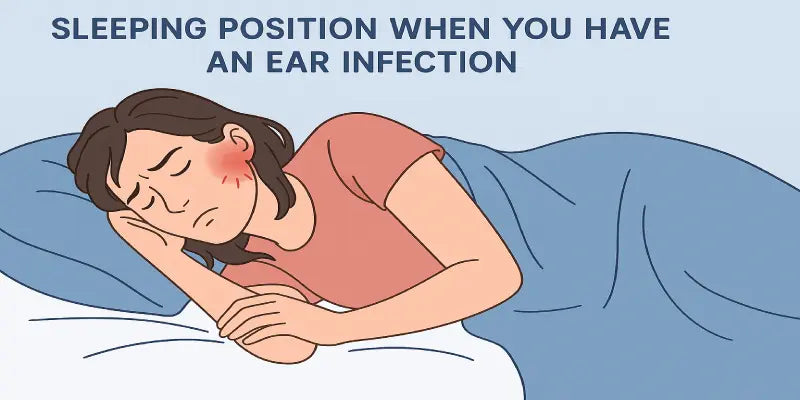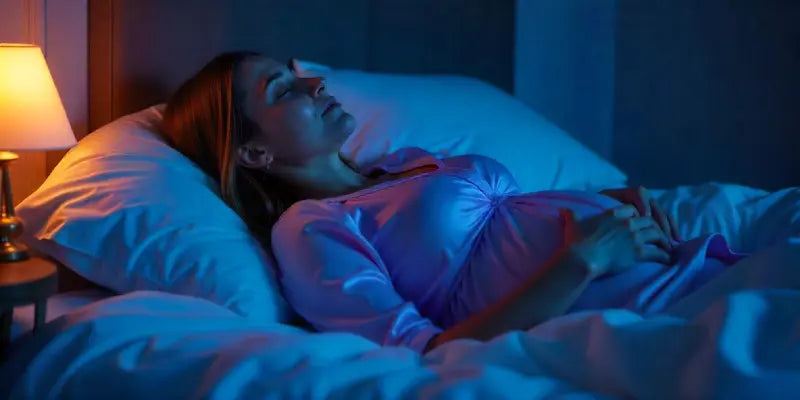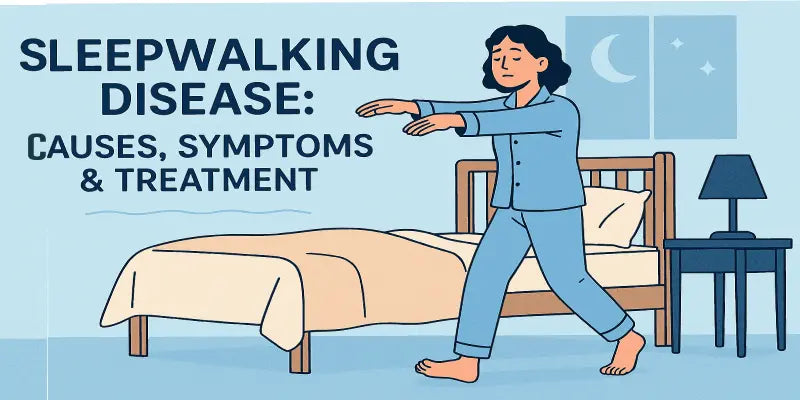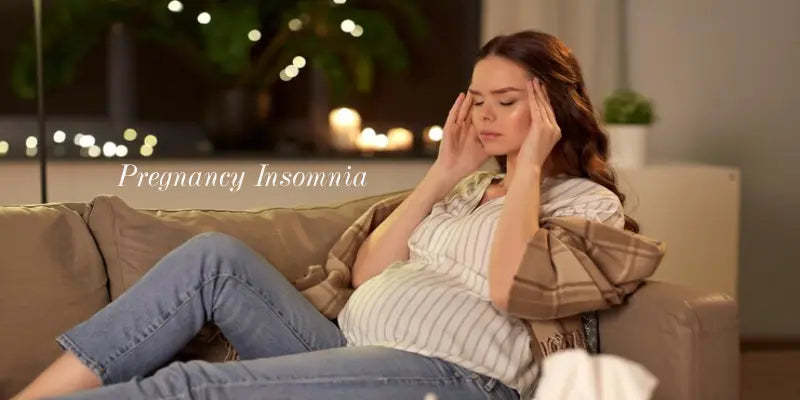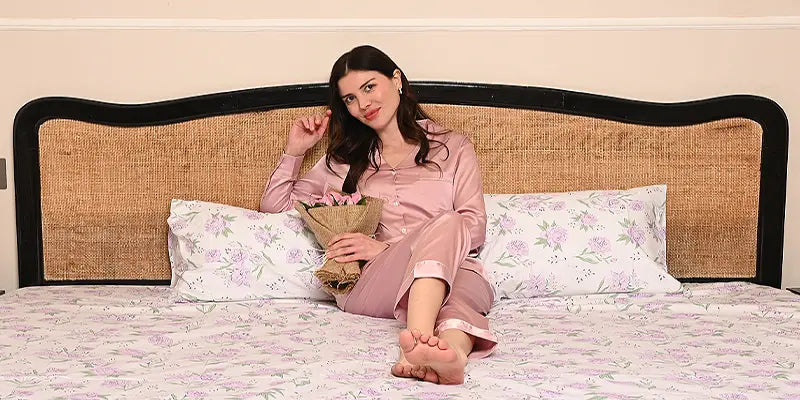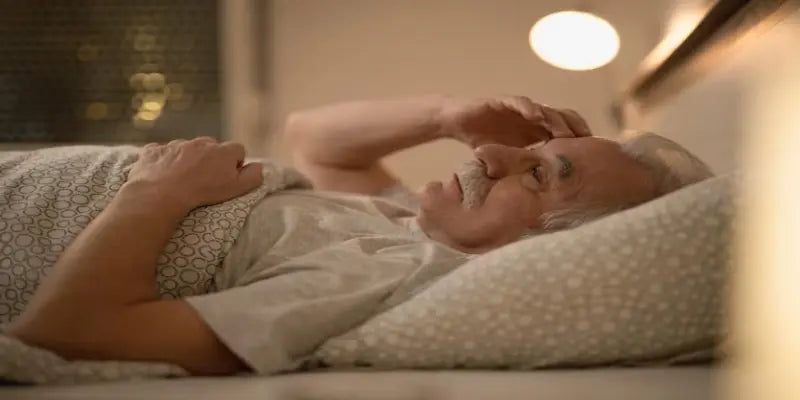
Tips for Improving Sleep Quality in Older Adults
You must have noticed your grandparents or parents struggling to get enough rest to fall asleep. They often wake up at night and find it difficult to fall back to sleep. This is because as we become older, our sleep needs change.
There is a common misconception that older adults need less sleep than younger people. Many elderly people struggle to get enough sleep, but this is not proof that they needed less sleep. Older adults require as much, if not more, sleep than younger people, roughly seven to nine hours per night, but frequently do not receive enough because of concerns such as difficulty getting and staying asleep.
In this blog post, we'll go over what causes sleep issues in older people and how they can get quality sleep at night.
How Does Aging Affect Sleep?
Different people have unique aging experiences. Some people face sleep problems while others sleep soundly at night. There are different factors that affects sleep in older adults:
- Shifting Sleep Schedule: You've possibly seen your grandparents take early afternoon naps and get up before the sunrise; there's an explanation behind it. People's sleep schedules change as they age, a phenomenon called phase progression. In this way, people over 65 become sleepy in the afternoon and wake up early in the morning.
- Daytime Napping: Older adults take naps during the day more often. Daytime naps are thought to be healthy for people of all ages, but as we get older, our naps become shorter, and these naps may interfere with our sleep at night.
- Waking up at Night: It is rather normal for older people to wake up frequently at night. Older people spend more time in the first, lighter stages of sleep and less time in the later, deeper ones. These changes can result in older adults waking up more frequently at night and having more fragmented, restless sleep.
- Less Deep Sleep: As people age, their bodies produce less stress growth hormone, which leads to less deep sleep. Some older people sleep for long hours, even if they are not receiving enough sleep, and they remain in bed all the time. It also has an adverse effect on their health.
What Causes Sleep Problems in Older Adults?
There are different reason for sleep problems in older adults, some of them are mentioned below:
- Medical Conditions: As people get older, their bodies begin to show signs of aging. Older people are more vulnerable to have medical issues that interfere with their sleep. Chronic pain issues, such as arthritis, and medical diseases like Alzheimer's disease can disrupt sleep. Other frequent sleep disorders, such as restless legs syndrome (RLS), nocturia, and sleep apnea, are linked to poor sleep quality.
- Lifestyle Habits: Certain problems with lifestyle are associated with bad sleep patterns. Irregular sleep cycles, a lack of physical exercise, excessive daytime napping, and the ingestion of stimulants like caffeine or alcohol close to bedtime can all limit the number of hours you get each night and make sleeping difficult.
- Medication: Most aged people use medications for a number of reasons. Some medications, such as antidepressants, high blood pressure meds, and nasal decongestants, could interfere with sleep.
- Sleep Disorders: Sleep disorders can affect people of any age, although they become more frequent as they get older. Many elderly persons suffer from sleep disorders such as sleep apnea and restless leg syndrome.
- Psychological Factors: Stress, anxiety, depression, and sorrow can all have an impact on sleep for older persons. These emotional difficulties may contribute to insomnia or difficulty falling asleep.
- Environmental Factors: The sleep environment impacts sleep quality. Excessive noise, an uncomfortable temperature, a low-quality mattress or pillow, and too much light can interfere with sleep. One of the most effective methods to support excellent sleep as you age is to create pleasant sleeping environments that improve sleep quality.
Tips to Sleep Better for Older Adults
Sleep is required for people of all ages to function properly during the day. In older people, whose energy levels are falling on a daily basis, the body requires more sleep to repair and recover. Here are some tips older adults can follow to sleep better at night:
Tip 1: Keep a Regular Sleep Schedule
Aging can make it more difficult to recover from sleep loss. Avoid sudden shifts in sleep schedules. This includes going to bed and getting up at the same time every day, as well as avoiding taking naps that are too long or close to bedtime.
Adjust your bedtime to fit when you want to go to bed, even if it's earlier than before. Taking a bath, listening to music, or practicing a relaxation method like progressive muscle relaxation, mindfulness meditation, or deep breathing can all help you relax before bedtime.
Tip 2: Exercise Regularly
Regular exercise helps older adults fall asleep faster, sleep longer, and have a higher quality of sleep. Exercise is one of the most beneficial things elderly people can do for their health.
Exercise, including aerobic activity, stimulates your body to release hormones that encourage deeper, more restful sleep. Even if you have mobility challenges, there are numerous activities you may do to prepare for a restful night's sleep. However, always check your doctor before starting any new exercise routine.
Tip 3: Maintain a Good Sleep Environment
TVs, mobile phones, and bright lights could make it difficult to fall asleep. Artificial lights at night can reduce your body's production of melatonin, the hormone that causes sleepiness. Use low-wattage bulbs if possible, and turn off the TV and computer at least an hour before bedtime.
As we get older, we tend to become more sensitive to noise, and light and heat can also disrupt sleep. A sound machine, earplugs, or a sleep mask can all help.
Experiment with different pillows and toppers, or consider a new pillow that better suits your sleeping posture. Using a cervical pillow improves both your upper and lower bodies, alleviates sleep apnea, and reduces back pain with age.
Tip 4: Opt for a Healthy Diet
Indigestion or discomfort can happen after consuming large or spicy meals. Try to have a light dinner at least three hours before bedtime. Alcohol, tobacco, caffeine, and even heavy meals late in the day can all disrupt sleep.
It can seem that alcohol makes you tired, but it really disturbs your sleep. Limit what you drink in the hour and a half before bedtime to reduce the number of times you wake up to use the bathroom at night.
Conclusion
Older people can improve their sleep quality by sticking to a consistent schedule, creating a sleep-friendly environment, practicing relaxation techniques, engaging in regular physical exercise, reducing stress, and getting treatment for sleep disorders. Prioritizing sleep and making good changes can improve general health and cognitive performance.
It is extremely important for older persons to maintain proper spine position while sleeping. A memory foam pillow can help you achieve this. A memory foam pillow can mold to the contour of your head and neck, ensuring that your body maintains proper posture throughout the night. It is also advised for persons of all ages because it relieves pressure on the spine and allows for proper alignment.

